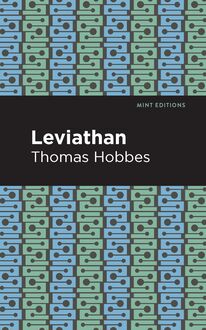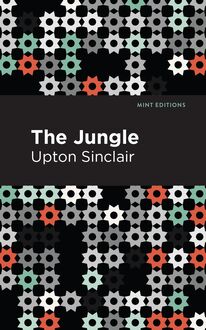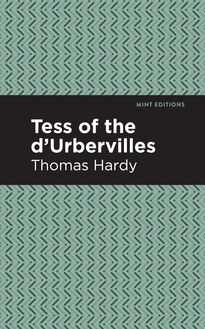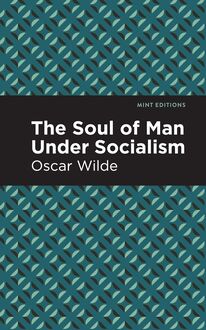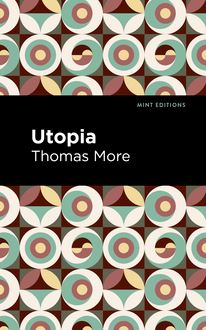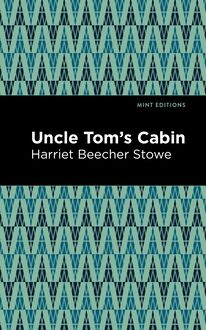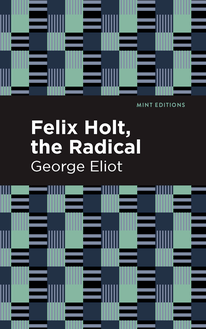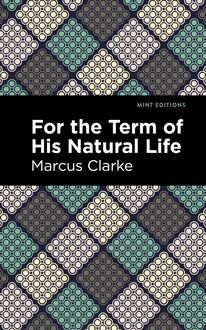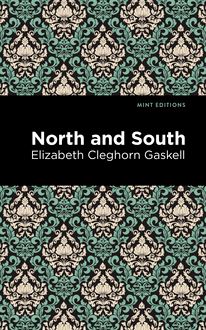-
 Univers
Univers
-
 Ebooks
Ebooks
-
 Livres audio
Livres audio
-
 Presse
Presse
-
 Podcasts
Podcasts
-
 BD
BD
-
 Documents
Documents
-
- Cours
- Révisions
- Ressources pédagogiques
- Sciences de l’éducation
- Manuels scolaires
- Langues
- Travaux de classe
- Annales de BEP
- Etudes supérieures
- Maternelle et primaire
- Fiches de lecture
- Orientation scolaire
- Méthodologie
- Corrigés de devoir
- Annales d’examens et concours
- Annales du bac
- Annales du brevet
- Rapports de stage
La lecture à portée de main
Vous pourrez modifier la taille du texte de cet ouvrage
Découvre YouScribe en t'inscrivant gratuitement
Je m'inscrisDécouvre YouScribe en t'inscrivant gratuitement
Je m'inscrisEn savoir plus
Vous pourrez modifier la taille du texte de cet ouvrage
En savoir plus

Description
Written by one of the founders of modern political philosophy, Thomas Hobbes, during the English civil war, Leviathan is an influential work of nonfiction. Regarded as one of the earliest examples of the social contract theory, Leviathan has both historical and philosophical importance. Social contract theory prioritizes the state over the individual, claiming that individuals have consented to the surrender of some of their freedoms by participating in society. These surrendered freedoms help ensure that the government can be run easily. In exchange for their sacrifice, the individual is protected and given a place in a steady social order. Articulating this theory, Hobbes argues for a strong, undivided government ruled by an absolute sovereign. To support his argument, Hobbes includes topics of religion, human nature and taxation. Separated into four sections, Hobbes claims his theory to be the resolution of the civil war that raged on as he wrote, creating chaos and taking causalities. The first section, Of Man discusses the role human nature and instinct plays in the formation of government. The second section, Of Commonwealth explains the definition, implications, types, and rules of succession in a commonwealth government. Of a Christian Commonwealth imagines the religion’s role government and societal moral standards. Finally, Hobbes closes his argument with Of the Kingdom of Darkness.
Through the use of philosophical theory and historical study, Thomas Hobbes attempts to convince citizens to consider the cost and reward of being governed. Without an understanding of the sociopolitical theories that keep government bodies in power, subjects can easily become complicit or allow society to slip into anarchy. Created during a brutal civil war, Hobbes hoped to educate and persuade his peers. Though Leviathan was a work of controversy in its time, Hobbes’ theories and prose has survived centuries, shaping the ideas of modern philosophy.
This edition of Leviathan by Thomas Hobbes is now presented with a stunning new cover design and is printed in an easy-to-read font. With these accommodations, Leviathan is accessible and applicable to contemporary readers.
Sujets
Informations
| Publié par | Mint Editions |
| Date de parution | 09 février 2021 |
| Nombre de lectures | 5 |
| EAN13 | 9781513279398 |
| Langue | English |
Informations légales : prix de location à la page 0,0600€. Cette information est donnée uniquement à titre indicatif conformément à la législation en vigueur.
Extrait
Leviathan
Thomas Hobbes
Leviathan was first published in 1651.
This edition published by Mint Editions 2020.
ISBN 9781513279145 | E-ISBN 9781513279398
Published by Mint Editions®
minteditionbooks.com
Publishing Director: Jennifer Newens
Design & Production: Rachel Lopez Metzger
Project Manager: Micaela Clark
Typesetting: Westchester Publishing Services
C ONTENTS I NTRODUCTION P ART I. O F M AN I. O F S ENSE II. O F I MAGINATION III. O F THE C ONSEQUENCES OR T RAYNE OF I MAGINATIONS IV. O F S PEECH V. O F R EASON AND S CIENCE VI. O F THE I NTERIOUR B EGINNINGS OF V OLUNTARY M OTIONS , COMMONLY CALLED THE P ASSIONS . A ND THE S PEECHES BY WHICH THEY ARE E XPRESSED VII. O F THE E NDS OR R ESOLUTIONS OF D ISCOURSE VIII. O F THE V ERTUES , COMMONLY CALLED I NTELLECTUALL ; AND THEIR C ONTRARY D EFECTS IX. O F THE SEVERALL S UBJECTS OF K NOWLEDGE X. O F P OWER , W ORTH , D IGNITY , H ONOUR , AND W ORTHINESSE XI. O F THE D IFFERENCE OF M ANNERS XII. O F R ELIGION XIII. O F THE N ATURALL C ONDITION OF M ANKIND , AS CONCERNING THEIR F ELICITY , AND M ISERY XIV. O F THE FIRST AND SECOND N ATURALL L AWES , AND OF C ONTRACTS XV. O F OTHER L AWES OF N ATURE XVI. O F P ERSONS , A UTHORS , AND THINGS P ERSONATED P ART II. O F C OMMON -W EALTH XVII. O F THE C AUSES , G ENERATION , AND D EFINITION OF A C OMMON -W EALTH XVIII. O F THE R IGHTS OF S OVERAIGNES BY I NSTITUTION XIX. O F SEVERALL K INDS OF C OMMON -W EALTH BY I NSTITUTION , AND OF S UCCESION TO THE S OVERAIGNE P OWER XX. O F D OMINION P ATERNALL AND D ESPOTICALL XXI. O F THE L IBERTY OF S UBJECTS XXII. O F S YSTEMES S UBJECT , P OLITICALL , AND P RIVATE XXIII. O F THE P UBLIQUE M INISTERS OF S OVERAIGN P OWER XXIV. O F THE N UTRITION , AND P ROCREATION OF A C OMMON -W EALTH XXV. O F C OUNSELL XXVI. O F C IVILL L AWES XXVII. O F C RIMES , E XCUSES , AND E XTENUATIONS XXVIII. O F P UNISHMENTS , AND R EWARDS XXIX. O F THOSE THINGS THAT W EAKEN , OR TEND TO THE D ISSOLUTION OF A C OMMON -W EALTH XXX. O F THE O FFICE OF THE S OVERAIGN R EPRESENTATIVE XXXI. O F THE K INGDOM OF G OD BY N ATURE P ART III. O F A C HRISTIAN C OMMON -W EALTH XXXII. O F THE P RINCIPLES OF C HRISTIAN P OLITIQUES XXXIII. O F THE N UMBER , A NTIQUITY , S COPE , A UTHORITY , AND I NTERPRETERS OF THE B OOKS OF H OLY S CRIPTURES XXXIV. O F THE S IGNIFICATION OF S PIRIT , A NGEL , AND I NSPIRATION IN THE B OOKS OF H OLY S CRIPTURE XXXV. O F THE S IGNIFICATION IN S CRIPTURE OF K INGDOME OF G OD , OF H OLY , S ACRED , AND S ACRAMENT XXXVI. O F THE W ORD OF G OD , AND OF P ROPHETS XXXVII. O F M IRACLES , AND THEIR U SE XXXVIII. O F THE S IGNIFICATION IN S CRIPTURE OF E TERNALL L IFE , H ELL , S ALVATION , THE W ORLD TO COME , AND R EDEMPTION XXXIX. O F THE S IGNIFICATION IN S CRIPTURE OF THE WORD C HURCH XL. O F THE R IGHTS OF THE K INGDOME OF G OD , IN A BRAHAM , M OSES , THE H IGH P RIESTS , AND THE K INGS OF J UDAH XLI. O F THE O FFICE OF OUR B LESSED S AVIOUR XLII. O F P OWER E CCLESIASTICALL XLIII. O F WHAT IS N ECESSARY FOR A MANS R ECEPTION INTO THE K INGDOME OF H EAVEN P ART IV. O F THE K INGDOME OF D ARKNESSE XLIV. O F S PIRITUALL D ARKNESSE FROM M ISINTERPRETATION OF S CRIPTURE XLV. O F D AEMONOLOGY , AND OTHER R ELIQUES OF THE R ELIGION OF THE G ENTILES XLVI. O F D ARKNESSE FROM V AIN P HILOSOPHY , AND F ABULOUS T RADITIONS XLVII. O F THE B ENEFIT THAT PROCEEDING FROM SUCH D ARKNESSE ; AND TO WHOM IT ACCREWETH XLVIII. A R EVIEW , AND C ONCLUSION
T HE I NTRODUCTION
Nature (the art whereby God hath made and governes the world) is by the art of man, as in many other things, so in this also imitated, that it can make an Artificial Animal. For seeing life is but a motion of Limbs, the begining whereof is in some principall part within; why may we not say, that all Automata (Engines that move themselves by springs and wheeles as doth a watch) have an artificiall life? For what is the Heart, but a Spring; and the Nerves, but so many Strings; and the Joynts, but so many Wheeles, giving motion to the whole Body, such as was intended by the Artificer? Art goes yet further, imitating that Rationall and most excellent worke of Nature, Man. For by Art is created that great L EVIATHAN called a C OMMON- W EALTH , or S TATE , (in latine C IVITAS ) which is but an Artificiall Man; though of greater stature and strength than the Naturall, for whose protection and defence it was intended; and in which, the Soveraignty is an Artificiall Soul, as giving life and motion to the whole body; The Magistrates, and other Officers of Judicature and Execution, artificiall Joynts; Reward and Punishment (by which fastned to the seat of the Soveraignty, every joynt and member is moved to performe his duty) are the Nerves, that do the same in the Body Naturall; The Wealth and Riches of all the particular members, are the Strength; Salus Populi (the Peoples Safety) its Businesse; Counsellors, by whom all things needfull for it to know, are suggested unto it, are the Memory; Equity and Lawes, an artificiall Reason and Will; Concord, Health; Sedition, Sicknesse; and Civill War, Death. Lastly, the Pacts and Covenants, by which the parts of this Body Politique were at first made, set together, and united, resemble that Fiat, or the Let Us Make Man, pronounced by God in the Creation.
To describe the Nature of this Artificiall man, I will consider
First the Matter thereof, and the Artificer; both which is Man.
Secondly, How, and by what Covenants it is made; what are the Rights and just Power or Authority of a Soveraigne; and what it is that Preserveth and Dissolveth it.
Thirdly, what is a Christian Common-Wealth.
Lastly, what is the Kingdome of Darkness.
Concerning the first, there is a saying much usurped of late, That Wisedome is acquired, not by reading of Books, but of Men. Consequently whereunto, those persons, that for the most part can give no other proof of being wise, take great delight to shew what they think they have read in men, by uncharitable censures of one another behind their backs. But there is another saying not of late understood, by which they might learn truly to read one another, if they would take the pains; and that is, Nosce Teipsum, Read Thy Self: which was not meant, as it is now used, to countenance, either the barbarous state of men in power, towards their inferiors; or to encourage men of low degree, to a sawcie behaviour towards their betters; But to teach us, that for the similitude of the thoughts, and Passions of one man, to the thoughts, and Passions of another, whosoever looketh into himselfe, and considereth what he doth, when he does Think, Opine, Reason, Hope, Feare, &c, and upon what grounds; he shall thereby read and know, what are the thoughts, and Passions of all other men, upon the like occasions. I say the similitude of Passions, which are the same in all men, Desire, Feare, Hope, &c; not the similitude or The Objects of the Passions, which are the things Desired, Feared, Hoped, &c: for these the constitution individuall, and particular education do so vary, and they are so easie to be kept from our knowledge, that the characters of mans heart, blotted and confounded as they are, with dissembling, lying, counterfeiting, and erroneous doctrines, are legible onely to him that searcheth hearts. And though by mens actions wee do discover their designee sometimes; yet to do it without comparing them with our own, and distinguishing all circumstances, by which the case may come to be altered, is to decypher without a key, and be for the most part deceived, by too much trust, or by too much diffidence; as he that reads, is himselfe a good or evill man.
But let one man read another by his actions never so perfectly, it serves him onely with his acquaintance, which are but few. He that is to govern a whole Nation, must read in himselfe, not this, or that particular man; but Man-kind; which though it be hard to do, harder than to learn any Language, or Science; yet, when I shall have set down my own reading orderly, and perspicuously, the pains left another, will be onely to consider, if he also find not the same in himselfe. For this kind of Doctrine, admitteth no other Demonstration.
PART I
OF MAN
I
O F S ENSE
Concerning the Thoughts of man, I will consider them first Singly, and afterwards in Trayne, or dependance upon one another. Singly, they are every one a Representation or Apparence, of some quality, or other Accident of a body without us; which is commonly called an Object. Which Object worketh on the Eyes, Eares, and other parts of mans body; and by diversity of working, produceth diversity of Apparences.
The Originall of them all, is that which we call Sense; (For there is no conception in a mans mind, which hath not at first, totally, or by parts, been begotten upon the organs of Sense.) The rest are derived from that originall.
To know the naturall cause of Sense, is not very necessary to the business now in hand; and I have els-where written of the same at large. Nevertheless, to fill each part of my present method, I will briefly deliver the same in this place.
The cause of Sense, is the Externall Body, or Object, which presseth the organ proper to each Sense, either immediatly, as in the Tast and Touch; or mediately, as in Seeing, Hearing, and Smelling: which pressure, by the mediation of Nerves, and other strings, and membranes of the body, continued inwards to the Brain, and Heart, causeth there a resistance, or counter-pressure, or endeavour of the heart, to deliver it self: which endeavour because Outward, seemeth to be some matter without. And this Seeming, or Fancy, is that which men call sense; and consisteth, as to the Eye, in a Light, or Colour Figured; To the Eare, in a Sound; To the Nostrill, in an Odour; To the Tongue and Palat, in a Savour; and to the rest of the body, in Heat, Cold, Hardnesse, Softnesse, and such other qualities, as we discern by Feeling. All which qualities called Sensible, are in the ob
-
 Univers
Univers
-
 Ebooks
Ebooks
-
 Livres audio
Livres audio
-
 Presse
Presse
-
 Podcasts
Podcasts
-
 BD
BD
-
 Documents
Documents
-
Jeunesse
-
Littérature
-
Ressources professionnelles
-
Santé et bien-être
-
Savoirs
-
Education
-
Loisirs et hobbies
-
Art, musique et cinéma
-
Actualité et débat de société
-
Jeunesse
-
Littérature
-
Ressources professionnelles
-
Santé et bien-être
-
Savoirs
-
Education
-
Loisirs et hobbies
-
Art, musique et cinéma
-
Actualité et débat de société
-
Actualités
-
Lifestyle
-
Presse jeunesse
-
Presse professionnelle
-
Pratique
-
Presse sportive
-
Presse internationale
-
Culture & Médias
-
Action et Aventures
-
Science-fiction et Fantasy
-
Société
-
Jeunesse
-
Littérature
-
Ressources professionnelles
-
Santé et bien-être
-
Savoirs
-
Education
-
Loisirs et hobbies
-
Art, musique et cinéma
-
Actualité et débat de société
- Cours
- Révisions
- Ressources pédagogiques
- Sciences de l’éducation
- Manuels scolaires
- Langues
- Travaux de classe
- Annales de BEP
- Etudes supérieures
- Maternelle et primaire
- Fiches de lecture
- Orientation scolaire
- Méthodologie
- Corrigés de devoir
- Annales d’examens et concours
- Annales du bac
- Annales du brevet
- Rapports de stage
